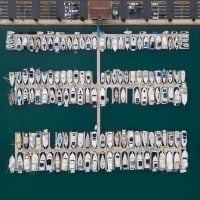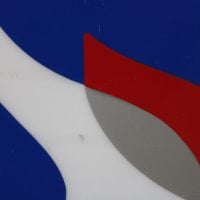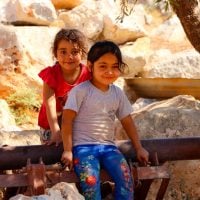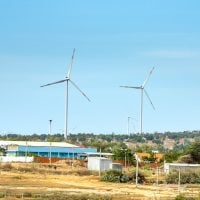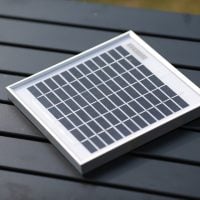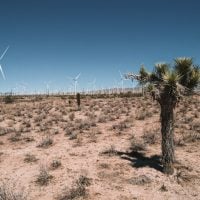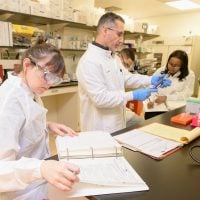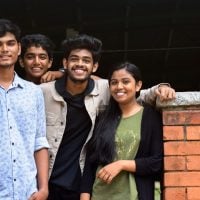Deadline: 10-Mar-23
The Queensland Government in partnership with the Isaac Regional Council is calling all Isaac artists, arts and cultural workers, groups and organisations to submit applications for the Regional Arts Development Fund (RADF).
RADF promotes the role and value of arts, culture and heritage as key drivers of diverse and inclusive communities and strong regions. RADF invests in local arts and cultural priorities, as determined by local communities, across Queensland. RADF is a flexible fund, enabling local councils to tailor RADF programs to suit the needs of their communities.
The Regional Arts Development Fund (RADF) is a partnership between the Queensland Government and Isaac Regional Council to support local arts and culture in regional Queensland. The Isaac region can benefit from up to $45,000 worth of grants to help re-energise arts.
Objectives
- RADF objectives are to support arts and cultural activities that:
- provide public value for Queensland communities
- build local cultural capacity, cultural innovation and community pride
- deliver the Queensland Government’s objectives for the community
Priorities
- Isaac is a region that feeds, powers and builds communities. They are rich in resources and made richer by the people who shape the culture through their stories, values, resilience, creativity, generosity and way of life.
- Creativity connects and energises the people, powers the communities by improving the health and sense of wellbeing, and provides opportunities for cultural tourism that feed creative industry development.
- Council has identified four (4) priority areas for funding in 2022 – 2023:
- Community Resilience
- Using arts and cultural initiatives as a tool for positive social impact.
- RADF will support projects that aid community recovery and build local capacity and resilience following the impacts of COVID-19, natural disasters or other unforeseen events. Projects responding to some other identified community need will also be eligible for funding under this priority.
- Local Content/Local Product
- Valuing the local artists, performers, creators and arts administrators.
- RADF will support initiatives that foster and sustain the development of locally produced content, product and events which provide community benefit and/or drive cultural tourism to the region.
- Place-making
- Facilitating creative activation of spaces and places.
- RADF will support activities and projects that activate and/or transform spaces, places and landscapes in ways that highlight the region’s unique identity and biodiversity and strengthen community connection to the environment.
- Lifelong learning
- Supporting opportunities for growth.
- RADF will support activities and undertakings which provide individuals, groups and organisations with opportunities for learning, professional development and growth.
- Community Resilience
Funding Categories
RADF supports four categories of funding:
- Individual Development
- This category is open to individuals to access financial support to participate in activities that build on their chosen arts practice.
- Proposals may include:
- Attending professional development seminars or activities;
- Master classes;
- Mentorships with recognised arts and cultural peers;
- Artist in residence programs; and
- Placements with recognised arts and cultural organisations.
- Considerations
- Assessments will support intrastate and interstate activities but not overseas activities. Assistance is available for up to 65% of the total costs for registration, accommodation, travel and meals to a maximum of $1,000 for activities in Queensland and $2,000 for activities in other states.
- Projects and Programs
- This category is open to individuals, groups and organisations where outcomes of their activities have a broader reach within the community.
- Proposals may include:
- Engaging professional artists or arts workers to run workshops or community projects that focus on developing skills of participants;
- Delivering arts and cultural projects where artists and communities work together;
- Delivering projects and activities that focus on locally distinct arts, culture and heritage such as:
- Product development by professional artists, either as individuals or in partnership with individual community members or community groups;
- Developing marketing strategies for a professional artistic product; and
- Community stories documentation. This may be done via various mediums such as plays, film/video/audio, artwork, digital exhibitions, education programs, oral histories and publications.
- Community Wellbeing
- This category is open to individuals, groups and organisations proposing arts and cultural activities where artists and communities work together to create specific outcomes that build community resilience and wellbeing within marginalised or minority groups.
- Projects may focus on the following areas:
- Health and wellness;
- Social justice; and
- Social inclusion and belonging.
- Projects should target a specific participant or audience such as:
- Aboriginal and Torres Strait Islander peoples;
- people from culturally and linguistically diverse backgrounds;
- older people (over 55 years old); and
- young people as creators, participants or audiences
- Proposals may include:
- Engaging professional artists or arts workers to run workshops or community projects that focus on developing community resilience and wellbeing and target marginalised or minority groups;
- Delivering arts and cultural projects where artists and communities work together to create specific outcomes that build community resilience and wellbeing within marginalised or minority groups; and
- An evaluation plan detailing how the social outcomes from the project will be identified and assessed.
- Local Priorities and Strategic Initiatives
- This category is open to individuals, groups and organisations responding to identified community needs such as recovery post natural disaster, a spike in youth suicide, or any circumstances where arts practice may benefit a community’s ability to process an identified issue or need.
- Proposals must include:
- Evidence of the identified need and community support for the project;
- A project plan outlining the aims, nature and structure of the project as well as any collaborations/partnerships, timeframes and budgetary considerations, intended target audiences and an “access” strategy to ensure activities encourage participation by people who may be experiencing hardship;
- An evaluation plan detailing how the social outcomes from the project will be identified and assessed.
Eligibility Criteria
- The following categories of individuals and organisations may apply for a RADF grant:
- Individual professional artists, emerging professional artists, arts workers, cultural workers or project coordinators who:
- Are resident in the Isaac Regional Council area (“the Council area”); or
- If based outside the Council area are able to demonstrate that the project will directly benefit arts and culture in the Council area;
- Are permanent residents or Australian citizens; and
- Have an Australian Business Number (ABN), or who will be auspiced by an incorporated organisation or an individual with an ABN;
- Incorporated arts and cultural organisations based in the Council area, or those based outside the Council area that are able to demonstrate that the project will directly benefit arts and culture in the Council area;
- Unincorporated organisations, auspiced by an incorporated body, that are based in the Council area, or those based outside the Council area that are able to demonstrate that the project will directly benefit arts and culture in the Council area.
- Individual professional artists, emerging professional artists, arts workers, cultural workers or project coordinators who:
- All applicants must be able to provide an ABN number and proof of insurance coverage for the funded activity in their applications. Applicants may use an auspicing arrangement to provide an ABN, insurance coverage and financial responsibility for Isaac RADF funding.
Ineligible
- Applicants who failed to acquit previous RADF grants;
- Activities that commence before Council RADF funding approval is given;
- School arts activities EXCEPT where those activities form part of broader community cultural development processes, community recovery from adverse events (e.g. drought, cyclone, youth suicide) or are part of professional arts development;
- Funding will not be provided to organisations that have already been funded by Arts Queensland to deliver their core business services;
- Catering costs for workshops, openings, launches and parties;
- Materials for activities which create items that become the personal possessions of participants;
- Competitions (e.g. eisteddfods) – they are prolific and could monopolise funds;
- Accredited study, training or university courses – RADF does not fund the primary training of artists, only their professional development once they are practising;
- Publishing costs. Requests for grants to publish books should be directed to organisations that provide print-on-demand services;
- Operational expenses of arts and cultural organisations are not eligible for funding including wages for permanent staff, administration and office expenses but may be included as in-kind contributions for specific activities;
- Applicants who seek funding to develop an exhibition or a collection.
For more information, visit Queensland Government.


